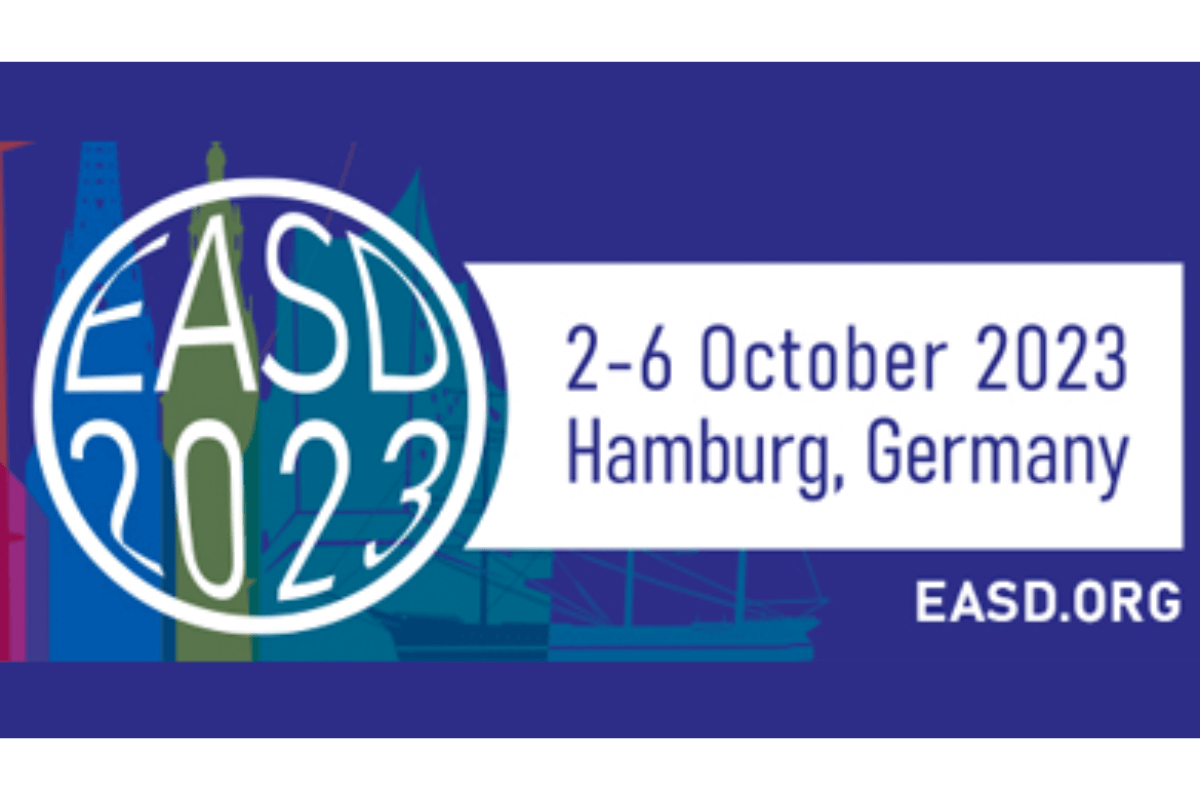
Leading researchers gathered in Hamburg, Germany, for the annual meeting of the European Association for the Study of Diabetes (EASD), which took place from October 2-6. Researchers, clinicians, and other leaders in the diabetes space from more than 120 countries attended—including experts from Breakthrough T1D and the Breakthrough T1D T1D Fund. The meeting featured more than 65 studies presented by Breakthrough T1D-funded researchers, funded now or in the past, working to find cures for type 1 diabetes (T1D) and improve the lives of those living with the disease today.
Research presented at this conference covered all areas of Breakthrough T1D’s research portfolio, from disease-modifying therapies to cell therapies to complications. Here are some of the highlights:
- Anti-Viral Drugs Against Enteroviruses: The first findings from the JDRF-funded clinical trial (DiViD) to test two anti-viral drugs against enteroviruses—common viruses that cause cold-like symptoms and may be linked to the development of T1D—in children with new-onset disease were presented by Knut Dahl-Jorgensen, M.D., Ph.D. Those who received the anti-viral medication maintained a higher level of insulin production after one year than those who did not take the medication, demonstrating that the treatment can slow the progression of T1D. The results were published in Nature Medicine.
- Heart Disease: In an EASD/Breakthrough T1D symposium, co-chaired by our own CEO Aaron Kowalski, Ph.D., presenters shared their insights on cardiovascular risk in youth with diabetes. Janet Snell-Bergeon, Ph.D., MPH, who has received a Breakthrough T1D grant to examine insulin resistance in T1D, spotlighted novel biomarkers for heart disease. The “ABCs” of diabetes risk factor management are HbA1c, blood pressure, and cholesterol levels, however, decreasing HbA1c, for example, is oftentimes not sufficient to reduce heart disease in T1D. To further stratify youth, APOC3 and GDF-15 proteins could be used as heart disease biomarkers. Ongoing research is integrating these into existing prediction models to verify their use as biomarkers for youth with T1D. If we can detect heart disease earlier, we can do earlier interventions, which can lead to the reversal of the early indicators of issues. In short, biomarkers let us see it earlier and act earlier.
- Also presenting on heart disease—which causes approximately three out of every four deaths in people with T1D—were members of the SFDT1 study, a Breakthrough T1D-funded research program that will follow 15,000 people with T1D over 30 years to better understand the factors associated with heart disease complications in T1D. This will offer new opportunities to better advance diabetes management, leading to more personalized prevention and improved quality of life.
- Stem Cell-Derived Therapy: In the summer of 2021, Vertex Pharmaceuticals launched its clinical trial of VX-880, a stem cell-derived islet replacement therapy in T1D for individuals with hypoglycemia unawareness, in combination with immunosuppressive therapy to protect the cells from rejection. To date, six participants have received this therapy, and three are now insulin independent. The phase I/II study is on Part C, where individuals receive a full dose of the therapy, and has opened multiple additional sites around the world.
- Once-Weekly Insulin: Novo Nordisk had results from its phase III ONWARDS 6 clinical trial, the first and only large study to date to investigate once-weekly insulin in people with T1D. There were 582 participants, and Novo Nordisk’s weekly insulin icodec was comparable to degludec (brand name Tresiba®), Novo Nordisk’s ultra-long-acting daily insulin. There was, however, a significantly higher rate of low blood sugar in people receiving icodec. Many participants noted, though, that they preferred once-weekly insulin over once-daily insulin, citing “frequency of injections” (70%) and “ease of use” (52%).
- Pregnancy + T1D: Most women with T1D struggle to reach the recommended blood-sugar targets when they are pregnant. But according to a new study presented by Helen Murphy, M.D., FRACP, an artificial pancreas system helped to substantially reduce maternal blood sugars throughout pregnancy. Published in The New England Journal of Medicine, the study authors say that—as a result of these findings—this technology should now be offered to all pregnant women with T1D to help improve maternal blood sugars.
- And, finally, congratulations to Breakthrough T1D-funded investigators:
-
- Åke Lernmark, M.D., Ph.D., received the 55th Claude Bernhard Medal, the highest award in recognition of contributions to the advancement of knowledge in the field of diabetes, for his role in dissecting the genetic and environmental causes of T1D;
- Yuval Dor, Ph.D., received the 17th Albert Renold Prize, given for a member’s outstanding achievement in research on the islets and their relationship to diabetes; and
- Roman Hovorka, Ph.D., received the EASD-Novo Nordisk Foundation Diabetes Prize for Excellence, which awards an internationally recognized researcher who has contributed significantly to advances in the understanding, prevention, and treatment of diabetes and its complications. Dr. Hovorka has been at the forefront of artificial pancreas research, developing the algorithm in CamAPS® FX, which is now available in 16 countries and is used by over 16,000 people.
The next conference we’ll be covering is the International Society for Pediatric and Adolescent Diabetes (ISPAD) 49th Annual Conference, from October 18-21 in Rotterdam, The Netherlands. Stay tuned for a precap and recap of this terrific meeting!